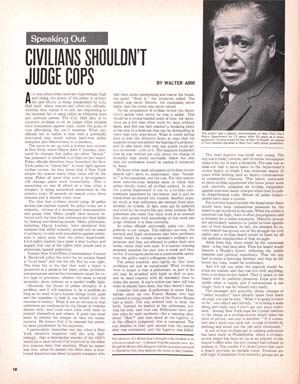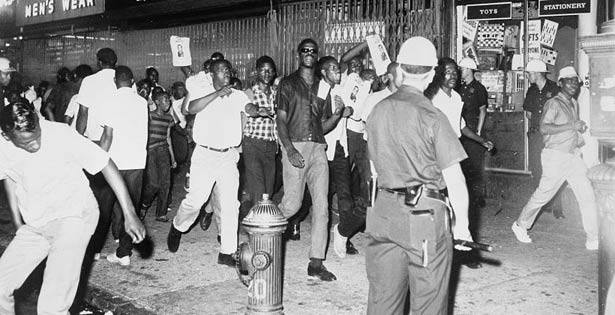Can we trust the police?
Since the killing of Michael Brown in Ferguson, Missouri, last year, reports of unarmed suspects being shot by police have drawn national attention. The Washington Post tracks the number of fatal shootings by police, and notes that 30 of the dead were black and unarmed.
Even more troubling are the videos being posted online showing what appears to be unwarranted violence by police. They challenge assumptions about charges of abuse — and police departments’ claims that their officers act within the law.
Police brutality has been a painful reality to many Americans throughout our history. Police officers in the past have enforced racist policies, broken up peaceful protests and lawful strikes, harassed dissidents and sexual minorities, and forced confessions from convenient suspects.
But such violations of the law never represented the majority of law enforcement officers. And pressure from the public and elected officials has exerted a reforming influence on police practices over time. Abuses still occur, but a growing number of departments are now becoming more transparent in their operations and addressing charges against their officers through civilian review boards.
Civilian review is a significant change from the traditional policy of law-enforcement agencies, which protected officers from any public scrutiny.
Back in 1964, the shooting of a black teenager by an off-duty white policeman in New York sparked six days of rioting in Harlem. In response to tensions between police and the black community of the city, John Lindsay, then mayor of New York, proposed a civilian board that would review complaints against the city’s police.

Lindsay’s idea was bitterly denounced by Walter Arm, a former deputy commissioner of the New York Police Department, who published an op-ed in the Post. Its title expressed his opinion succinctly: “Civilians Shouldn’t Judge Cops.”
Arm believed that only police officers were qualified to judge fellow officers. Civilians couldn’t fairly evaluate police officers’ actions based on the complaints of other citizens. Civilian review would “damage police work irremediably … [and] reduce hard-won police discipline and effectiveness to a mockery.”
Officers wouldn’t get an impartial judgment from civilians, Arm wrote, because “police today are a minority, victims of a stereotyped misconception and group libel. … Most advocates of civilian-review boards can’t seem to understand … that ‘brutality’ is the exception, not the rule.”
Police officers were professionals, he argued. Like surgeons, or military officers, they should be judged only by their colleagues. “Their work is so unusual that only people with knowledge of this work can judge whether it is done correctly.”
Arm asserted that police officers rarely misused their power because knew they would face punishment from their superiors. What’s surprising is that he made this claim knowing of widespread illegalities within the New York Police Department. Years earlier, he had written Pay-off! The Inside Story of Big City Corruption, an exposé of how the police were protecting the city’s illegal gambling rackets. Despite uncovering evidence of broad corruption, he believed the New York police administration kept the department clean.
Mayor Lindsay was never able to place the civilians he wanted on the department’s review board. A proposal to authorize direct civilian review of police officers was defeated in a citywide vote. But the idea didn’t die; New York established an all-civilian review board in 1993.
Responding to a demand for greater accountability, several departments across the country are now setting up civilian review boards.
There are currently about 200 such boards across the country and more departments are considering them.
But some departments that have already established civilian review are finding it isn’t the remedy they’d hoped. In 2013 critics found the Baltimore board was ineffective and had little cooperation from the city government. The Department of Justice recently investigated the board in Cleveland, which it found as secretive as the old police review system.
Many police departments still object to civilian review, claiming — as did Arm — that civilians don’t understand what police officers face; the difficulty of acting quickly, decisively, and correctly in dangerous situations.
Civilian reviewers probably can’t understand the challenges of modern police work. But officers may prefer to be judged by their testimony to a review board than by a two-minute video of them shot from a bystander’s smartphone.
The public deserves police officers who act in accordance with the law, and are punished when they betray their authority. But our police also deserve the support, and the assumption of professionalism, from the public. And both deserve the chance to express their concerns over the eroding trust between civilians and cops.
The Post will continue to encourage fair discussion and provide an outlet for both sides to express their views”
Become a Saturday Evening Post member and enjoy unlimited access. Subscribe now




Comments
BLOOMINGTON INDIANA NEEDS TO POLICE THE POLICE !!